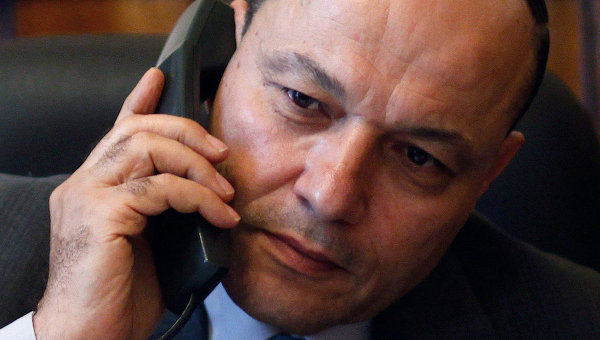PARIS: “Let’s engage Russia if we can, but contain it if we must. These two alternatives already defined Western strategy toward Russia in the mid-1990s. Since then, Russia may have changed dramatically, but not our questions about it. What do you do when your big neighbor widens the gap that exists between its culture, which is European, and its political system, which is becoming increasingly “Asian, at least in the bad old sense of “Oriental despotism ?
Should the best answer to the return of Russia’s imperial ambitions be a modern version of a Holy Alliance of stability designed to contain the world’s new maverick? Or is a latter-day Yalta Conference, aimed at redrawing the political boundaries of Europe, necessary? Could the answer be a bit of both?
If Russia is becoming what revolutionary France was under Napoleon, or reverting to Soviet form – shorn of a totalitarian ideology but with an appetite for conquest and re-conquest – what is needed is not the “league of democracies advocated by some conservatives in America. What is needed, instead, is a “stability league that includes prominent actors like China, India, and other countries that are more interested in economic growth than in “rocking the boat of the international system. Such a strategy implies, first of all, a solid partnership with China, not because it is evolving in the direction of democracy, but because it is a status-quo power.
Such a strategy could lead to the opening of negotiations with Iran, and of course to a further closing of ranks within NATO. The message to the Kremlin here would be crystal clear. “Do not fool yourself. Nationalism and imperialism will lead you nowhere; you cannot expand geographically without serious costs to your economic growth and your personal enrichment. Europe may be weak and divided, America may no longer be what it was, but with your falling population and the sad state of your economy beyond oil and gas, you simply are not equipped to be in the league of great global powers. China is; you are not.
But the containment argument fails, because the Kremlin can still make mischief around the world by acting with Syria or Venezuela in an irresponsible manner. More importantly, rallying the world solely against Russia would mean taking Russia’s great power pretensions too seriously.
For example, many Asians believe that Russia is a problem for Europe, but no longer for the world. At the Cold War’s end, Japan remained obsessed with Russia as the heir to the Soviet Union. Today, the Japanese are so concerned with China that they have little time for fears about Russia.
The other alternative to a rebirth of “containment would consist in accepting the Russian argument, or more precisely, Russian “emotions. It would mean saying, in effect, “We have unnecessarily humiliated you over the last 10 years. From NATO enlargement to the grant of independence to Kosovo, we have deliberately ignored your sensitivities and your interests. Let’s sit down together like Churchill, Roosevelt, and Stalin at Yalta and redesign a 21st-century map of Europe. What do you want back? What do we keep? This approach might recognize Russia’s droit de regard on the future evolution of the Caucasus. Indeed, while talking tough under the guidance of Nicolas Sarkozy’s France, which currently holds the EU presidency, Europe has de facto resigned itself to Georgia’s dismemberment. Russian troops are to remain in South Ossetia and Abkhazia. The West is not about to declare war on Russia for the sake of a Georgia whose credibility has been greatly eroded by its president’s irresponsible behavior. As for Ukraine, it may one day become part of the European Union, but its future is not in NATO.
Yet, between all-out containment, which is very unlikely and not necessarily desirable or realistic, and accommodation which borders on appeasement, which would be dangerous for Europe’s future, a third way, based on a few firm principles, must be found.
These principles are clear. First, Ukraine’s territorial integrity is not negotiable. This has been said many times, but repetition does not diminish its importance. Russia without Ukraine is a manageable nation-state; Russia with Ukraine is an unmanageable empire.
Second, even if the West condemns Georgia’s irresponsibility and incorporates into its policy Russia’s sensitivities on the complex historical feelings related to its ex-imperial territories, the Kremlin’s shameless brutality is unacceptable. After all, this is Europe more than six decades after World War II, and nearly 20 years after the collapse of the Soviet Union.
The use of force to settle scores and impose one nation’s will upon another cannot be accepted passively.
In the short term, time may be on Russia’s side. In the long run – economically, demographically, politically, strategically – time is on “our side, if we stick to our values and our principles.
Dominique Moisi, a founder and Senior Advisor at Ifri (French Institute for International Relations), is currently a Professor at the College of Europe in Natolin, Warsaw. This article is published by Daily News Egypt in collaboration with Project Syndicate, (www.project-syndicate.org).


